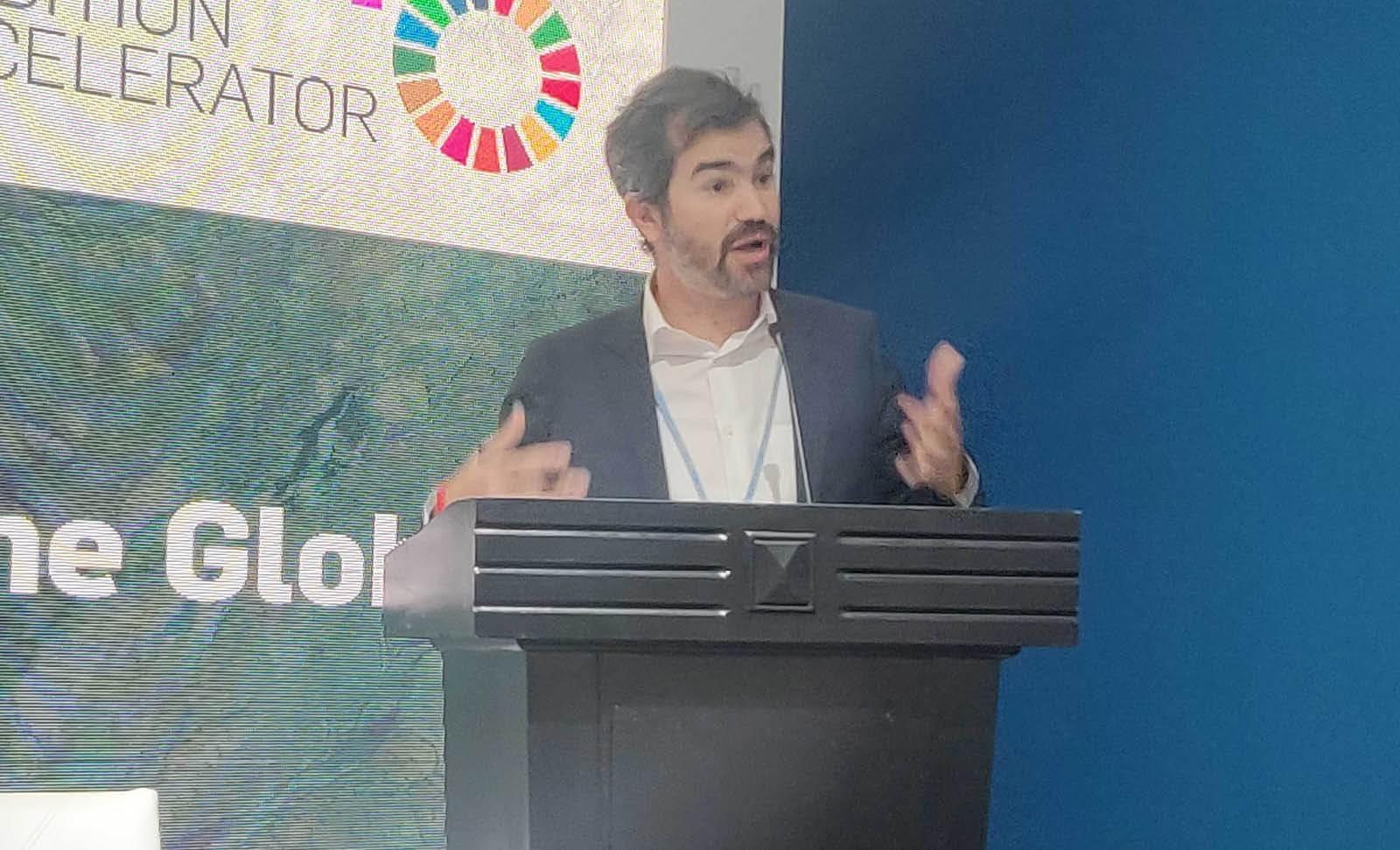
COP27: A reassuring outcome, but with significant omissions
Nov 23rd 2022
This year’s conference culminated in a historic breakthrough to address loss and damage caused by climate change in vulnerable countries. But there is still a gaping void when it comes to addressing global fossil fuel emissions. Luiz Amaral, CEO of the Science Based Targets initiative (SBTi), discusses his key takeaways from COP27, and why corporate climate action continues to be vital in plugging the gaps in climate legislation.
Loss and damage was at the forefront of many countries’ agendas going into COP27. Now, after 30 years of opposition, governments have made the groundbreaking decision to provide funding for poorer nations impacted by climate disasters.
While there have been many exciting and reassuring breakthroughs at the conference, there is undoubtedly disappointment too. There remains no commitment to the phasing out of fossil fuels, which throws our ability to meet 1.5°C further into question. While this is the case, urgent corporate climate action is increasingly important in leading the way in global decarbonization efforts.
As we edge towards another year in this decisive decade, we must not lose our hope or our focus. A number of positive steps were taken at this year’s COP, steps that will take us further down the path of climate resilience and keep us steadfast in the fight against climate change.
Policy powering progress
We are witnessing a key trend in governmental action: governments are demonstrating the efficacy of science-based targets across the value chain through strong climate policy for their suppliers and subsidiaries.
The White House announced its intention to require all suppliers of the federal government to set science-based targets. The federal government is the largest purchaser in the world, meaning that this rule change will bring hundreds of companies in to set science-based targets and lead to a significant reduction of real-world emissions.
The US also announced a hugely significant step forward with the formation of the Net-Zero Government Initiative alongside 18 other nations worldwide, which promises a roadmap to achieve net-zero commitments with interim targets by COP28.
This comes just weeks after Norway became the first country in the world to announce a plan for all state-owned companies to set science-based targets. Additionally, suppliers of the UK government are already required to have net-zero targets for 2050 or earlier.
These developments, while exciting, must only be the beginning. There is still a long way to go in increasing ambition at policy level and more world leaders must implement legislation which bolsters the fight against climate change.
Exponential growth for ambition continues
Finally, we also saw a milestone for SBTi be achieved during COP27. The mark of 4000 companies committed to setting science based targets, with half of them (1900) already with plans published and targets validated. This number has doubled since the last COP, confirming the continuous and exponential growth of recent years.
This growth in corporate climate action is also fueled by an understanding from companies that we can only solve climate change holistically. As businesses formulate their science-based targets, they must include scope 3 - value chain - emissions, and engage their suppliers and consider the use of sold products.
UN report - we’re on the right track
The UN High-Level Expert Group (HLEG) released its report on net-zero commitments during the first week of COP27. The report addressed net-zero pledges and commitments from non‑state actors including corporations, financial institutions, and local and regional governments. We were pleased to see the SBTi referenced several times as a strong example of robust methodology and guidance when it comes to corporate net-zero.
The SBTi launched the Net-Zero Standard, the world’s first framework for setting corporate net-zero targets, in October 2021, and has since validated more than 100 corporate net-zero targets. Our team is in the process of a thorough review of the report and its recommendations, and we look forward to further strengthening SBTi’s framework.
COP27 has shown that great leaps of progress can be made in some areas, and yet we can stall in others. The private sector has enormous potential in driving the climate action that is so urgently needed to prevent irreversible damage to the climate. Companies must continue to accelerate decarbonization efforts, pivot away from fossil fuels, and demonstrate the appetite for sustainable legislation, especially while there are still gaps in governmental policy.
Setting science-based targets is a key part of this journey. Commit to the most ambitious targets today, and do your part for the planet.
Didn’t manage to catch the SBTi live at COP27?
Check out the recordings of our events:
Climate Ambition Across the Globe, hosted by UN Global Compact on November 11th
Climate Ambition World Tour, hosted by UN Global Compact on November 12th
Scaling science-based decarbonization across the value chain, hosted by the SBTi on November 14th
Driving corporate climate action in the Global South, hosted by the SBTi on November 16th
Net-Zero: Science-based not science-fiction, hosted by the SBTi on November 17th
Latest News
View News


